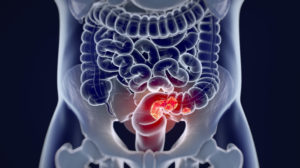Previous studies have established that people with obesity have different methylation profiles in their tissues versus lean people.
Obesity among pregnant women has been a worldwide concern. Obesity during pregnancy increases the risk of pregnancy complications such as gestational hypertension, gestational diabetes mellitus, preeclampsia, delivery of large-for-GA infants, and a higher incidence of congenital defects. Metabolic disease in offspring and obesity in pregnant mothers is associated with epigenetic alterations in cord blood.
DNA methylation is a heritable epigenetic alteration. However, DNA methylation can be changed by lifestyle. The evidence available currently suggests that interventions aiming at controlling prepregnancy weight and preventing obesity may have both the short- and long-term health impact for mother and child.
Read the original publication of this study here: [ Lifestyle Intervention in Pregnant Women With Obesity Impacts Cord Blood DNA Methylation, Which Associates With Body Composition in the Offspring ]
This study aimed to determine whether the lifestyle intervention in pregnant women with obesity from the Treatment of Obese Pregnant Women (TOP)-study is associated with epigenetic alterations in the offspring. The researchers examined the umbilical cord blood of 208 of the newborn babies to determine if epigenetic changes had taken place.

Intervention in Pregnant Women With Obesity Impacts Cord Blood DNA Methylation Which Associates With Body Composition in the Offspring
A collaborative study among researchers in Sweden, Denmark, and Spain led by Lund University in Sweden focused on the association between lifestyle intervention in pregnant women with obesity and epigenetic alterations in the baby.
This study was approved by the Ethics Committee for the Capital Region of Denmark, and written informed consent was obtained from all participants before enrollment.
The TOP-study involved a randomized controlled trial of 425 pregnant women with obesity, all of whom fit the definition of having a BMI over 30. They were divided into three different groups:
- Group 1 (PA + D) lifestyle intervention consisted of physical activity assessed with a pedometer.
- Group 2 (PA) lifestyle intervention only included physical activity assessed with a pedometer.
- Group 3 (Control Group) remained to have the same lifestyle and received standard care.
Participants in both PA + D and PA were encouraged to obtain 11,000 using a pedometer. PA + D group was recommended a Mediterranean diet of 1200-1675 calories per day.
Due to participants withdrawing from the study, having miscarriages, and relocating from the region, 389 out of 425 completed the study.
This study’s primary endpoint was to assess the impact of these lifestyle interventions on gestational weight gain (GWG).
Researchers found that the offspring were similar in weight, length, and gestational age (GA) at birth. There were no detectable differences between the groups regarding breastfeeding or BMI scores at birth. However, at 18 months, children from the lifestyle intervention group were larger and have more abdominal lean mass than control subjects.
Genome-wide DNA methylation was analyzed in cord blood from 208 offspring. This study’s results may indicate that methylation of some identified sites may also have a biological role in tissues of importance for obesity and type 2 diabetes.
This study also demonstrates that physical activity and healthy diets during pregnancy can change cord blood DNA methylation on genes involved in metabolic processes. This only suggests that a healthier lifestyle during pregnancy has meaningful epigenetic changes that benefit the offspring’s health in the long term.
Takeaways:
- Health interventions such as physical activity and a healthy diet during pregnancy in women with obesity affect newborn babies’ epigenetics.
- Increased physical activity and a healthy diet during pregnancy can reduce weight increase in pregnant women with obesity, which counteracts diseases associated with high BMI.
- A healthier lifestyle during pregnancy may enhance the offspring’s health later in life.
You can read the original publication of this study here: [ Lifestyle Intervention in Pregnant Women With Obesity Impacts Cord Blood DNA Methylation, Which Associates With Body Composition in the Offspring ]





